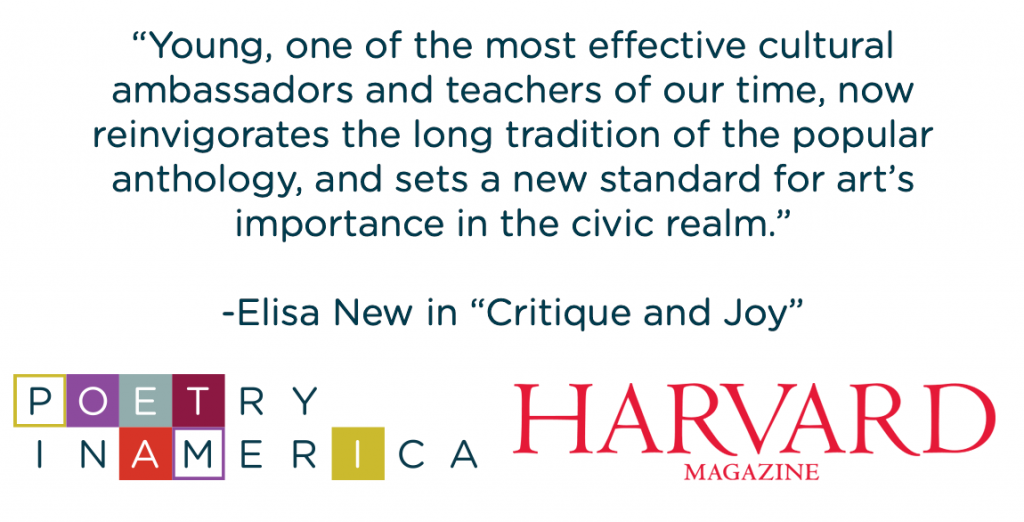Elisa New Reviews African American Poetry: 250 Years of Struggle and Song for Harvard Magazine

On Friday August 13th, Harvard Magazine published a review by Professor Elisa New of Kevin Young’s 1,000-plus page anthology African American Poetry: 250 Years of Struggle and Song. A polymath, Young is, among other things, the Director of the Smithsonian’s National Museum of African American History and Culture, the poetry editor for The New Yorker, the author of 15 volumes of poetry and prose, and the prolific editor of eight previous collections of poetry.
“Young, one of the most effective cultural ambassadors and teachers of our time, now reinvigorates the long tradition of the popular anthology, and sets a new standard for art’s importance in the civic realm.” —Elisa New
As an historical anthology, Young’s collection is charged with cutting a dialectical path through the development of Black American poetry—tracing the seeds of each new poem, each new poet, each new movement, in prior poems, poets, movements and histories. This imperative to storytelling often gives anthologies, as Professor New says, “a bad rap among academics.” But while an anthology might inevitably fail to include a given poem, poet, or movement, the anthology format gathers a diversity of materials and “nurtures a sophisticated kind of understanding that passes through pleasure into respect,” New notes. “The most popular anthologies are substantial harvests, promising inexhaustibility.”
Released in October 2020, Young’s inexhaustible, 1000-plus page anthology has been a critical and commercial success, a fact which is, to a degree, attributable to the rising popularity of a new generation of Black American poets. As Walt Whitman once said: “the proof of a poet is that his country absorbs him as affectionately as he has absorbed it.”
From spirituals to the classicism of Phillis Wheatley, to the dialect poetry of Paul Laurence Dunbar, to the jazzy improvisation of Langston Hughes, to hip hop, and on to the work of contemporary poets like Tracy K. Smith, Yusef Komunyakaa, and Claudia Rankine: Black American poetry has always been a part of the fabric of American life and culture. In tracing its development from colonial times to the present day, Young’s anthology casts much deserved critical attention on the deep ways in which Black poetry has shaped American life and language.
